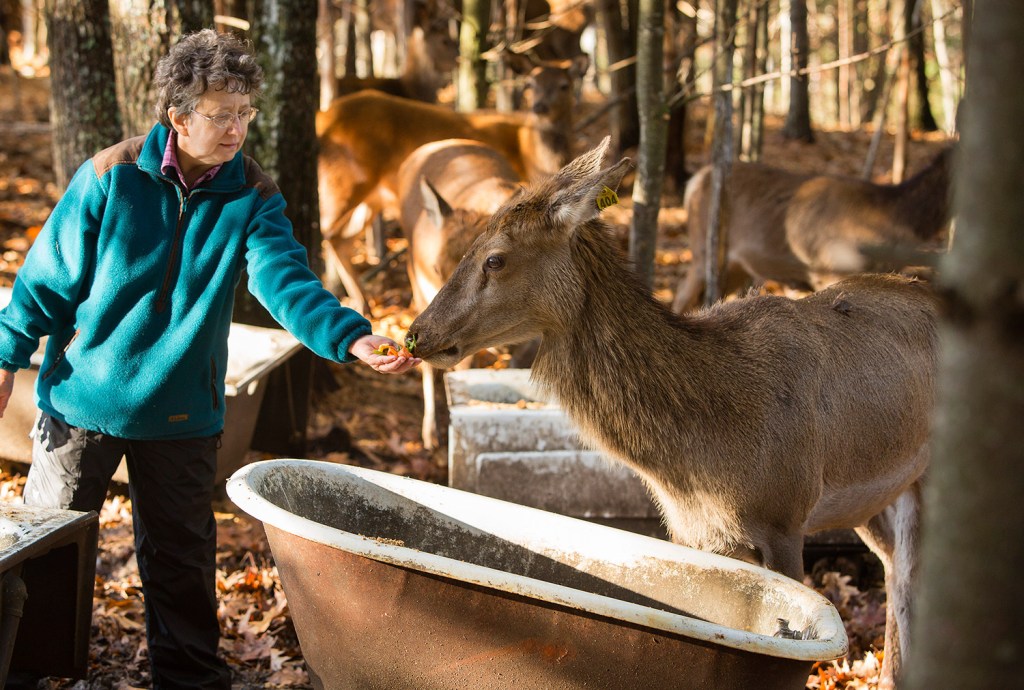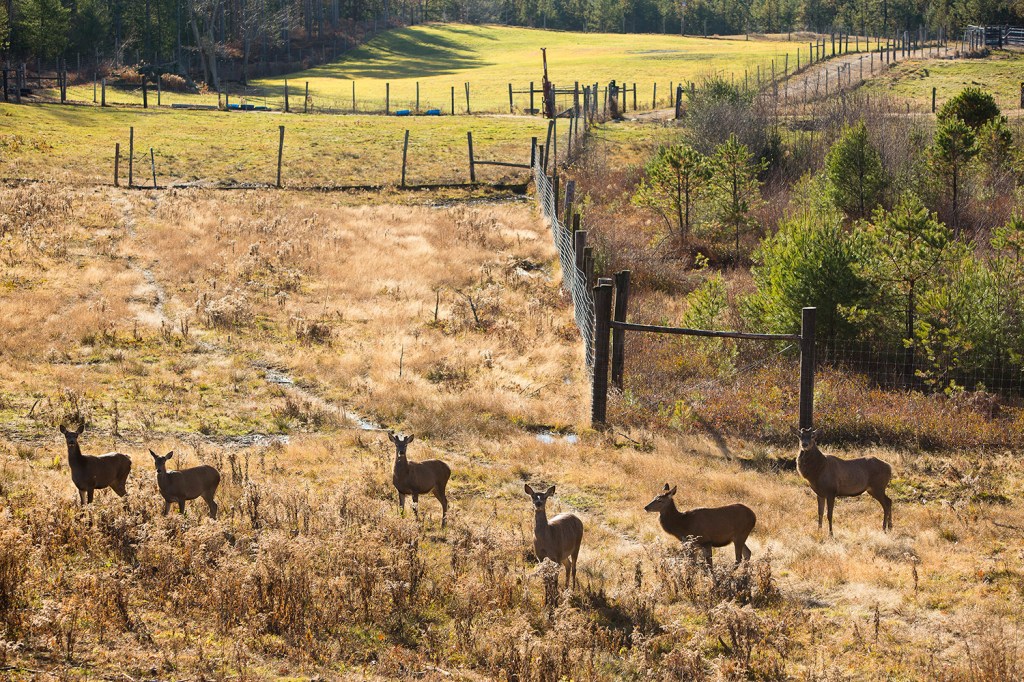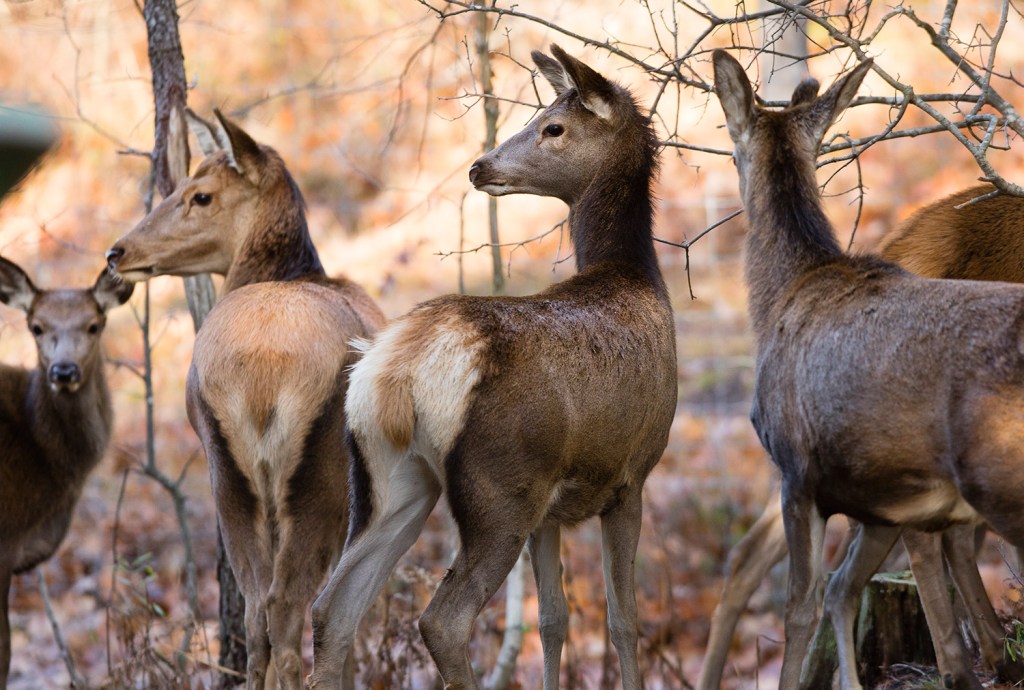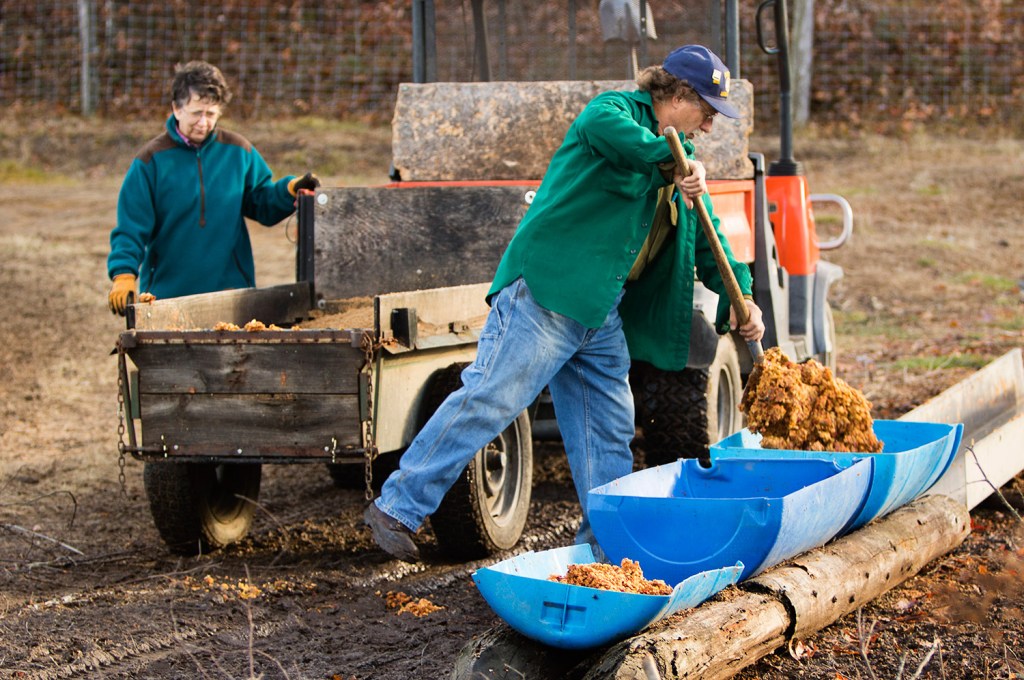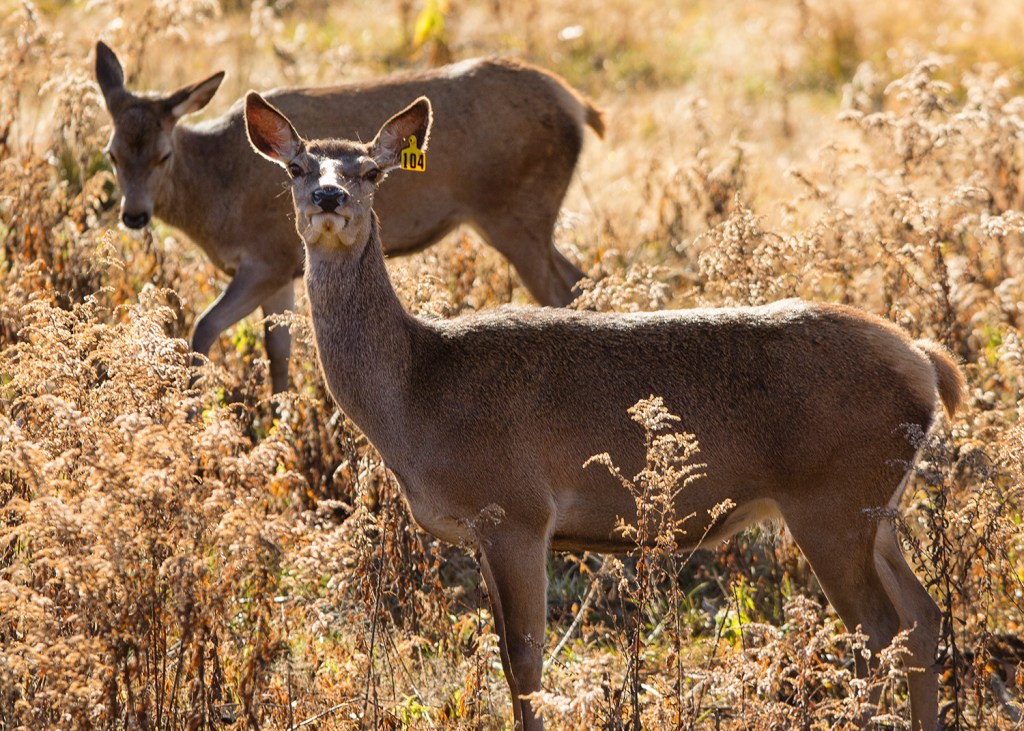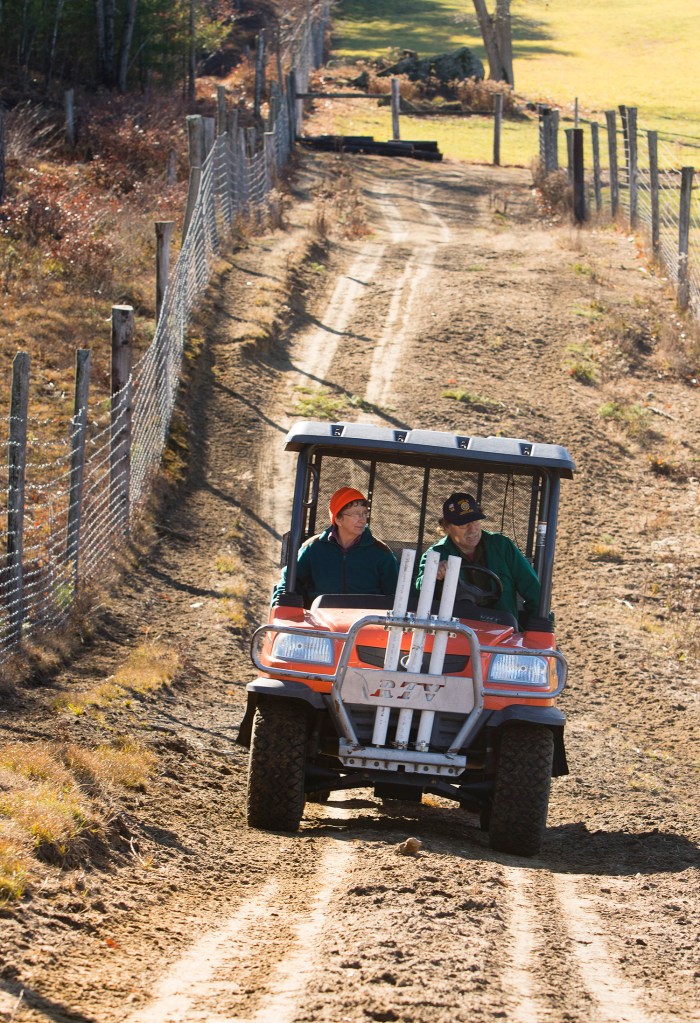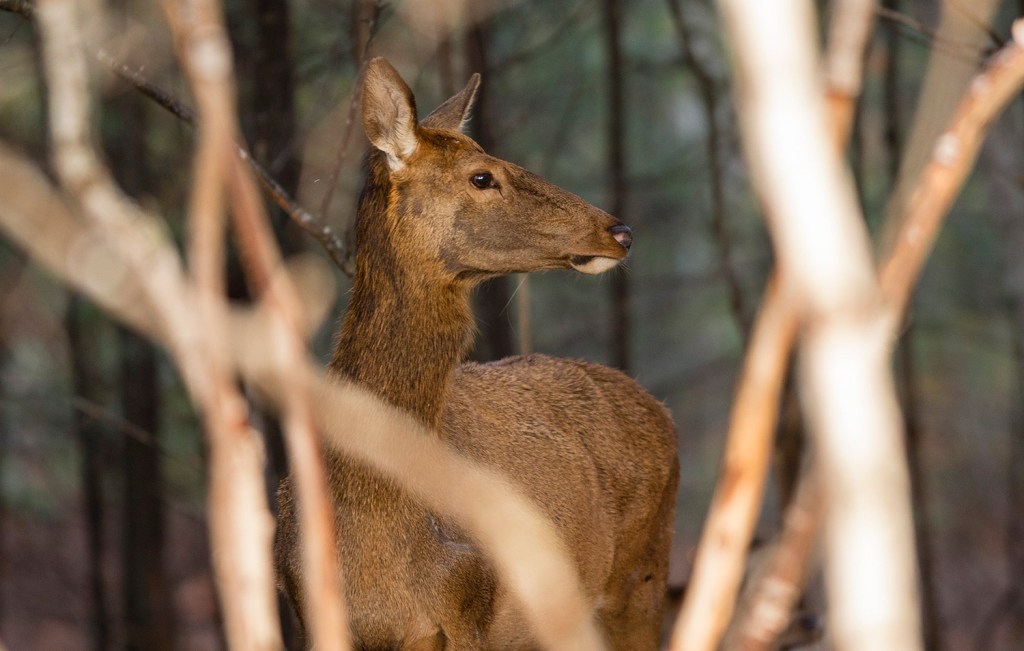In their quest to be local, Maine chefs have served dishes that feature the crispy tails of pasture-raised pigs, seaweeds from the deep and hen of the woods mushrooms pulled from oak trunks. All these local foods are fair game for the innovative local chef who relishes the concept of terroir – the French term for the distinct flavors of the environment foods grows in.
But not local wild game, which can’t be sold commercially in the United States. It was regulated out of the retail market so long ago that even some food professionals don’t know why they’re not allowed to serve it.
If you find venison on a Maine menu, it was probably imported from another state or country. The only Maine venison ever on Maine menus comes from one of the state’s deer farms, such as Edgar and Patricia Dolbec’s Applegate Farm in West Newfield, which supplies chef Cara Stadler with venison for Tao Yuan in Brunswick, but that is red deer, native to New Zealand.
Confusing, especially given how many whitetails you might see grazing near 295 on your morning commute. Which explains why Stadler and other area chefs would like to see a re-examination of laws preventing the sale of wild game that date back to 1885 on a state level and 1900 federally. “Outdated barriers,” chef Evan Mallett of Black Trumpet in Portsmouth, New Hampshire, called them.
“There is a disconnect between relative abundance and legislation that dictates we can’t serve that,” he said. He noted that wild deer, which face few predators today thanks to man’s widespread slaughter of wolves and coyotes, are so abundant that some communities pay to have them killed. “It is a big issue for chefs.”
“If we can harvest a wild mushroom, we should be able to harvest (and serve) a wild deer,” Mallett said.
This “hot conversation,” as he called it, about allowing the commercial sale of game has been percolating nationally, too, as well as in response to the overpopulation of a species that carries the tick that causes Lyme disease, chews up forestland and has a tendency to get in the way of cars. Mallett and Stadler would both love to serve native wild game, but getting over the political hurdles would be an enormous challenge. Some say an impossible one.
“That’s never going to happen,” said Bonnie Holding, director of information and education at the Department of Inland Fisheries and Wildlife. “Unfortunately, people don’t know when to stop.”
BACK IN TIME
Holding was referring to the first century of statehood when it was practically open season in Maine woods. Between the “sports,” mostly city gentlemen who popped up to not-yet-vacationland to enjoy time off in the woods, and the Maine farmers and woodsmen trying to feed their families and get a little cash into their threadbare pockets, the state’s native game stood little chance. Maine hunters would roll into markets with wagonloads full of deer saddles or the hindquarters of a massive moose, which fetched $21 in 1858. The “sports” would board the train in Bangor, headed to Boston or farther with their trophies, the dead deer piled on each other like suitcases. The wild turkey and the caribou fared even worse.
There were rules, frequently ignored, and both sides blamed each other. Out-of-state hunters were banned and then allowed back, town moose wardens appointed. Soon there were game commissioners, some of whom branded the locals “hoodlums,” poaching past their limits. Meanwhile the sports were “intelligent gentlemen,” (actual language from commissioner reports in the 1880s). Game wardens were said to leave the sports to their own devices in the summer, which included killing for pleasure and abandoning the meat, while chasing after the locals in the winter. Historian Edward Eves called it a full-out Game War.
By the turn of the century, the wild game population was depleted: the caribou and wild turkeys gone, the moose and deer in trouble. Protection and conservation became the aim of both state and national governments, and within 40 years, hunters were forbidden from selling any meat a state wildlife agency deemed game, i.e., a native local species.
That door is unlikely to be reopened anytime soon.
“Whenever money is involved, it seems like things go downhill,” Holding said.
TASTE OF THE WILD
Holding is not just the spokesperson for Inland Fisheries but a hunter and longtime Maine Guide herself, who appreciates just how delicious wild game is. “What could be more organic or free range than game meat?” she said. “It is so good.”
As well as good for you. “It has very high nutritional value,” she said. “And there are some minerals we can get from wild game that we can’t get from farm animals.”
Both chefs and consumers are increasingly aware of these benefits. At Union in the Press Hotel in Portland, chef Josh Berry serves venison carpaccio. “With the autumn season upon us, I love using these ‘other’ local ingredients,” he wrote in an email. “With the venison dish in particular, I think of the deer and its natural habitat.” He seasons it with spruce bud oil and fresh ground juniper to highlight “the forest theme.”
He sources his venison from Yankee Farmers Market in New Hampshire, so there’s a chance it comes from the Dolbec’s farm, where it would have spent some time in the woods, albeit inside a fence and with daily handouts of hay. In other words, it wasn’t wild and therefore not subject to ban.
According to State Veterinarian Michele Walsh, who oversees the state’s roughly 60 deer farms, only about a dozen raise deer for meat (others treat the deer more as pets, she said). It’s been a hit or miss business, but lately, at least for the Dolbecs, more hit than miss. They are down to just 13 deer from a high of 140. Why so low?
“There was such a demand for the venison,” Edgar Dolbec said.
YOUR FRIENDLY HUNTER
If you want to eat true wild game from Maine, be it bear, moose, deer or fowl, you either need to hunt or befriend a hunter. Vinland chef/owner David Levi butchered a moose cow a friend had shot a couple of years ago. His friend brought the moose back to his Cumberland backyard and the two of them tackled processing it together.
They grilled up some tender cuts, opened some fine red wine and had an “extraordinarily good meal.”
Levi would happily serve responsibly sourced moose at Vinland if he could; tasting something like that makes you want to share it.
What frustrates him is the contradiction between the way America handles the sale of wild ocean foods versus wild woodland animals.
“In this country, we have a very laissez-faire attitude toward the sale of wild animals from the ocean, including animals that are high in mercury and parasites and are endangered.”
Being able to buy and sell wild game – at least deer – might have benefits beyond pleasing chefs and their locavore customers. The nation has an estimated 30 million deer, many carrying ticks and causing car accidents. Maine island communities – Monhegan and Peak’s – have hired sharp shooters to get rid of them, at not inconsiderable expense. The state has extended bag limits to hunters and in some areas, including around Portland, allowed hunters using archery to take multiple antlerless deer.
A conservation group called the Wildlife Society discussed the possibility of a limited commercial harvest at its annual convention in 2013, where a wildlife ecologist referred to retail sales as possibly “another tool in the toolbox” to handle the overpopulation problem.
Last fall, a state legislator in New Jersey proposed allowing hunters to sell deer meat. According to sponsor Rep. Caroline Casagrande’s office, the bill is likely to die in committee. But it caught national attention because it raised intriguing questions: What if local hunters could reduce the number of deer and profit from the hunt? What if the public could buy healthy and delicious meat?
“It would be nice to create some legal avenues for people to make money,” Levi said. “We should be pushing for change at the highest level.”
WORK-AROUNDS ABOUND
There are a few other ways to eat wild game from Maine without becoming a hunter.
The Hunters for the Hungry program encourages hunters to donate their kill, or part of their kill, to the needy. They hand it over to the Department of Agriculture, Conservation and Forestry, which provides the processing – free – through a state-inspected facility and then dispenses the meat to the state’s food pantries and shelters. It’s a strange and sweet little twist that means that this highly regulated food ends up in the hands of people who could never afford to dine at places like Tao Yuan.
While the state’s food code doesn’t allow for the commercial sale of wild game, any nonprofit that holds fewer than 12 community dinners a year can serve legally caught game, at a fundraising dinner no less. A church in Skowhegan regularly hosts these dinners, which raise money for good causes. At Unity College, an annual wild game dinner always sells out.
Then there are the “accidents” and yields from poachers who get caught.
Ticketholders at Harvest on the Harbor’s Marketplace event in Portland this year were offered moose chili by students and teachers from Southern Maine Community College’s culinary program. A warden from Maine Inland Fisheries and Wildlife stood just a few feet away and happily explained to anyone who asked that the moose was an accidental kill, reported by hunters who’d mistakenly gone over their limit. The moose was confiscated and put to use giving the students an opportunity to work with a meat they don’t encounter every day.
If an area restaurant put wild game on its menu and got caught, they’d be in trouble with multiple agencies, including Inland Fisheries and the Department of Agriculture, Forestry and Conservation. If they try to serve wild rabbit instead of commercially raised and processed rabbit, the meat will be confiscated (as recently happened in Portland). But the wild game community dinners are not subject to inspection.
A BIRD IN HAND
Another reason these forward-thinking chefs are frustrated by restrictions on wild game is that they’ve seen how other countries handle it. Levi was just in Italy, where “any little country restaurant that you go into in Tuscany has wild boar.” In the United Kingdom last year, Stadler ate wild squab and was unperturbed to find a bullet in it; that is how it was killed, after all. She watched friends hunt at a wild game estate in Scotland, where hunts are supervised by a gamekeeper. “You field dress it and then drop it off at a processing facility, and it is inspected by a vet.” Wild venison there makes it into the supermarket, with health assurances, and to her, this seems reasonable and doable.
None of these chefs are advocating for poaching or unregulated wild meat. They just want some leeway that doesn’t send them shopping far away.
“I haven’t explored the rules in Italy, but I wouldn’t expect you could just shoot a wild boar, throw it in your Fiat and bring it to the store to sell,” Levi said. “Otherwise, people would be getting sick left and right, and they are not.”
At Black Trumpet in Portsmouth, Mallett sources regularly from a company in upstate New York that sells him everything from ostrich to alligator and white-tailed deer (from away). He also hosts an annual game dinner every January and is a staunch opponent of using the word “gamey” as a pejorative.
“Game is the way meat was intended to taste,” he said.
His annual dinner always sells out, so he decided this year to make it a two-day event. Sourcing is such a challenge he starts as early as September. In the past, he’s sourced from Broken Arrow Ranch in Texas, which raises antelope and wild boar, among other things, on a massive ranch, harvests via snipers in helicopters and processes to USDA standards right there in the field.
“I’m not saying we should be doing that in Maine,” Mallett said. “I am just saying we could be a lot more creative than we are right now about harvesting wild meat.”
Send questions/comments to the editors.


